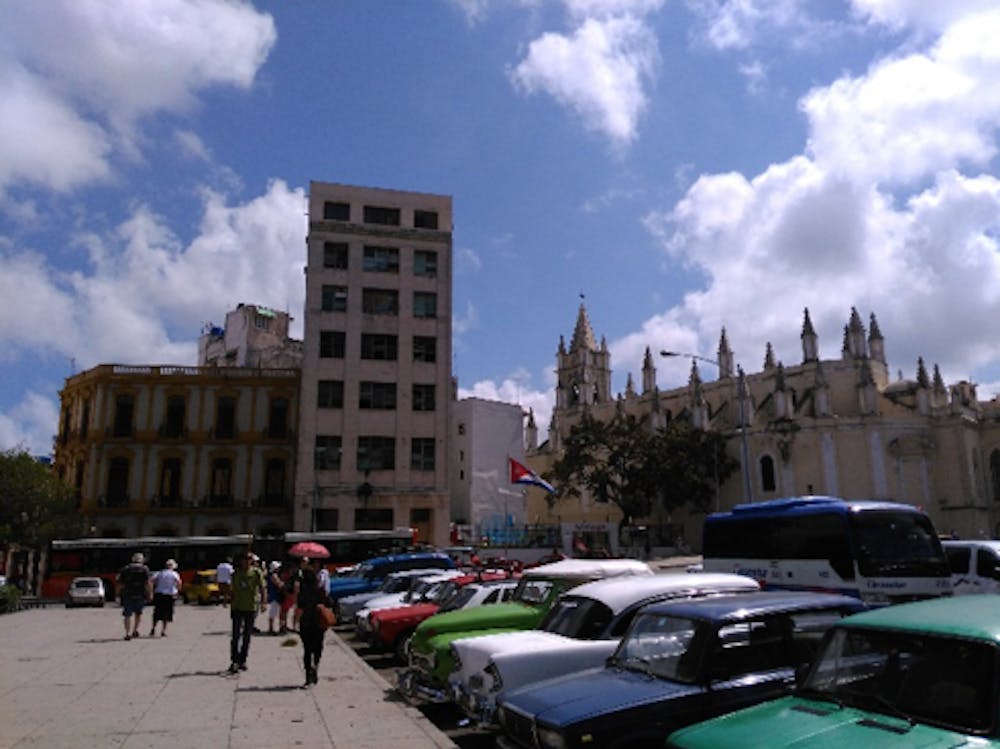As tourism in Cuba increases, and as University of Richmond students now have the opportunity to study abroad there, many first-time visitors don't know what to expect. Some of the items listed below, written by a Cuban for non-Cubans, might be common knowledge, but others are not.
1. After the Cuban Revolution ended in 1959, the country adopted a communist regime, led by Fidel Castro. Many of the country's leaders are Castro's family members or friends, and there are neither elections nor governmental influence for average citizens.

2. There are two different currencies in Cuba: the national currency (CUP) and the “convertible dollar" (CUC). The national currency is used by Cubans, while the "convertible dollar" is widely used among tourists, and has the same value as the American dollar. Both are normally accepted everywhere.
3. Continuing with the separation between locals and foreigners, there are different buses for the two groups. You would rarely see Cubans mixed with tourists, or tourists with Cubans.
4. You may need to know someone who is Cuban to get into certain places. It’s not that entrance is forbidden for tourists, but a generous entry-fee will have to be paid if you are not invited by a local.
5. Cuban mojitos are strong. They have no relation to the adapted version sold in other countries that have a sweeter and softer taste.

6. Education and health services are completely free for Cubans. Citizens will never have to pay to study or receive medical attention.
Enjoy what you're reading?
Signup for our newsletter
7. Cars are a luxury. You may know that vehicles from the 1950s and 1960s are common in Cuba. These old rides are often inherited, and can be up to 10 times more expensive than their value in other countries.

8. On the contrary, housing is very cheap. As most houses are passed from one generation to the next, they are usually much cheaper than their market value.
9. Salaries are extremely low, and most people work several jobs to make a living. Because of this, there are few wealthy citizens. If a police
officer sees that somebody has something valuable, they will most likely take it away
from that person, citing suspicions that it was stolen from a tourist.
10. There is no such thing as free WiFi. Cubans and tourists alike must pay for a WiFi-enabler card. These cards provide a username and password to connect to the Internet through an Internet provider. Naturally, the prices of these cards are different for citizens and tourists.
11. Cubans may not be inclined to talk politics. When asked about the government, many will avoid the question with a short answer, which can sometimes show a fake positivity toward the leader.

Contact Gloria de las Heras at gloria.delasherascalvino@richmond.edu.
Support independent student media
You can make a tax-deductible donation by clicking the button below, which takes you to our secure PayPal account. The page is set up to receive contributions in whatever amount you designate. We look forward to using the money we raise to further our mission of providing honest and accurate information to students, faculty, staff, alumni and others in the general public.
Donate Now



